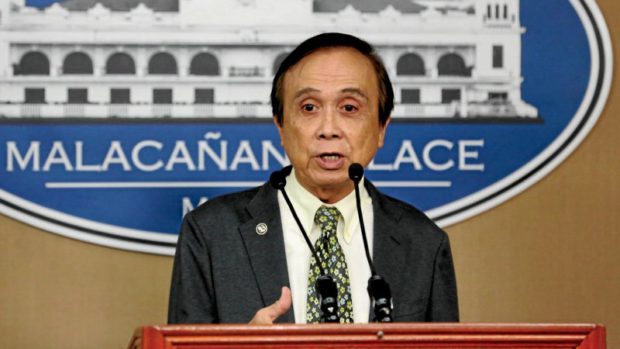
NEDA chief Ernesto Pernia. INQUIRER file photo / JOAN BONDOC
MANILA, Philippines–An estimated 1.3 million jobs were created over the past 12 months allowing the Philippines to log an employment rate of 94.9 percent — the highest among all April rounds of the Labor Force Survey since 2009 — the government said on Wednesday.
In a statement, Economic Planning Secretary Ernesto Pernia said the unemployment rate was recorded at 5.1 percent in April this year compared to 5.5 percent in April 2018.
Meanwhile, the underemployment rate, which is the proportion of those already employed but still wanting more work, fell to its lowest in more than a decade (April rounds only) at 13.5 percent.
These numbers translated to 42.2 million Filipinos with jobs, the government said describing the labor market as “vibrant.”
The 1.3 million jobs generated for the period is more than double April 2018’s 625,000.
Pernia stressed the need to continuously lower the unemployment and underemployment rates to successfully meet the Philippine Development Plan targets by 2022.
“Both quality and quantity of work need to be addressed. At the same time that employment opportunities are being increased, workers and jobseekers must be enabled to improve their knowledge and skills through training and education,” he said.
The services sector, which comprised 58.5 percent of the country’s total employment, was the biggest contributor in terms of additional employment amid a more bullish business outlook in the second quarter of 2019.
“The expansion may be attributed to increased business activities in line with the campaign period for the Philippine midterm elections. Adding to this is the increase in consumer demand during summer and harvest seasons,” Pernia said.
Government programs, which includes the Government Internship Program, JobStart Philippines Program and apprenticeship, need to be enhanced to strengthen the labor market while also making it more flexible, he added.
Pernia also highlighted the need for a more comprehensive income protection program through a more vigilant enforcement of work safety regulations, aggressive employment facilitation and unemployment insurance to protect workers from unsafe working conditions and economic disruptions. (Editor: Jonathan P. Vicente)